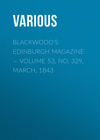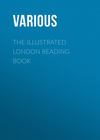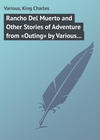Читать книгу: «Blackwood's Edinburgh Magazine — Volume 53, No. 329, March, 1843», страница 4
Шрифт:
POEMS AND BALLADS OF SCHILLER
No. VI.
THE LAY OF THE BELL
"Vivos voco—Mortuous plango—Fulgura frango."
Fast, in its prison-walls of earth,
Awaits the mould of bakèd clay.
Up, comrades, up, and aid the birth—
THE BELL that shall be born to-day!
And wearily now,
With the sweat of the brow,
Shall the work win its grace in the master's eye,
But the blessing that hallows must come from high.
And well an earnest word beseems
The work the earnest hand prepares;
Its load more light the labour deems,
When sweet discourse the labour shares.
So let us ponder—nor in vain—
What strength has wrought when labour wills;
For who would not the fool disdain
Who ne'er can feel what he fulfills?
And well it stamps our Human Race,
And hence the gift TO UNDERSTAND,
When in the musing heart we trace
Whate'er we fashion with the hand.
From the fir the fagot take,
Keep it, heap it hard and dry,
That the gather'd flame may break
Through the furnace, wroth and high.
Smolt the copper within—
Quick—the brass with the tin,
That the glutinous fluid that feeds the Bell
May flow in the right course glib and well.
What now these mines so deeply shroud,
What Force with Fire is moulding thus,
Shall from yon steeple, oft and loud,
Speak, witnessing of us!
It shall, in later days unfailing,
Rouse many an ear to rapt emotion;
Its solemn voice with Sorrow wailing,
Or choral chiming to Devotion.
Whatever sound in man's deep breast
Fate wakens, through his winding track,
Shall strike that metal-crownèd crest,
Which rings the moral answer back.
See the silvery bubbles spring!
Good! the mass is melting now!
Let the salts we duly bring
Purge the flood, and speed the flow.
From the dross and the scum,
Pure, the fusion must come;
For perfect and pure we the metal must keep,
That its voice may be perfect, and pure, and deep.
That voice, with merry music rife,
The cherish'd child shall welcome in;
What time the rosy dreams of life,
In the first slumber's arms begin.
As yet in Time's dark womb unwarning,
Repose the days, or foul or fair;
And watchful o'er that golden morning,
The Mother-Love's untiring care!
And swift the years like arrows fly—
No more with girls content to play,
Bounds the proud Boy upon his way,
Storms through loud life's tumultuous pleasures,
With pilgrim staff the wide world measures;
And, wearied with the wish to roam,
Again seeks, stranger-like, the Father-Home.
And, lo, as some sweet vision breaks
Out from its native morning skies,
With rosy shame on downcast cheeks,
The Virgin stands before his eyes.
A nameless longing seizes him!
From all his wild companions flown;
Tears, strange till then, his eyes bedim;
He wanders all alone.
Blushing, he glides where'er she move;
Her greeting can transport him;
To every mead to deck his love,
The happy wild flowers court him!
Sweet Hope—and tender Longing—ye
The growth of Life's first Age of Gold;
When the heart, swelling, seems to see
The gates of heaven unfold!
O Love, the beautiful and brief! O prime,
Glory, and verdure, of life's summer time!
Browning o'er the pipes are simmering,
Dip this fairy rod within;
If like glass the surface glimmering,
Then the casting may begin.
Brisk, brisk to the rest—
Quick!—the fusion to test;
And welcome, my merry men, welcome the sign,
If the ductile and brittle united combine.
For still where the strong is betrothed to the weak,
And the stern in sweet marriage is blent with the meek,
Rings the concord harmonious, both tender and strong:
So be it with thee, if for ever united,
The heart to the heart flows in one, love-delighted;
Illusion is brief, but Repentance is long.
Lovely, thither are they bringing,
With her virgin wreath, the Bride!
To the love-feast clearly ringing,
Tolls the church-bell far and wide!
With that sweetest holyday,
Must the May of Life depart;
With the cestus loosed—away
Flies ILLUSION from the heart!
Yet Love lingers lonely,
When Passion is mute,
And the blossoms may only
Give way to the fruit.
The Husband must enter
The hostile life,
With struggle and strife,
To plant or to watch,
To snare or to snatch,
To pray and importune,
Must wager and venture
And hunt down his fortune!
Then flows in a current the gear and the gain,
And the garners are fill'd with the gold of the grain,
Now a yard to the court, now a wing to the centre!
Within sits Another,
The thrifty Housewife;
The mild one, the mother—
Her home is her life.
In its circle she rules,
And the daughters she schools,
And she cautions the boys,
With a bustling command,
And a diligent hand
Employ'd she employs;
Gives order to store,
And the much makes the more;
Locks the chest and the wardrobe, with lavender smelling,
And the hum of the spindle goes quick through the dwelling;
And she hoards in the presses, well polish'd and full,
The snow of the linen, the shine of the wool;
Blends the sweet with the good, and from care and endeavour
Rests never!
Blithe the Master (where the while
From his roof he sees them smile)
Eyes the lands, and counts the gain;
There, the beams projecting far,
And the laden store-house are,
And the granaries bow'd beneath
The blessings of the golden grain;
There, in undulating motion,
Wave the corn-fields like an ocean.
Proud the boast the proud lips breathe:—
"My house is built upon a rock,
And sees unmoved the stormy shock
Of waves that fret below!"
What chain so strong, what girth so great,
To bind the giant form of Fate?—
Swift are the steps of Woe.
Now the casting may begin;
See the breach indented there:
Ere we run the fusion in,
Halt—and speed the pious prayer!
Pull the bung out—
See around and about
What vapour, what vapour—God help us!—has risen?—
Ha! the flame like a torrent leaps forth from its prison!
What, friend, is like the might of fire
When man can watch and wield the ire?
Whate'er we shape or work, we owe
Still to that heaven-descended glow.
But dread the heaven-descended glow,
When from their chain its wild wings go,
When, where it listeth, wide and wild
Sweeps the free Nature's free-born Child!
When the Frantic One fleets,
While no force can withstand,
Through the populous streets
Whirling ghastly the brand;
For the Element hates
What Man's labour creates,
And the work of his hand!
Impartially out from the cloud,
Or the curse or the blessing may fall!
Benignantly out from the cloud
Come the dews, the revivers of all!
Avengingly our from the cloud
Come the levin, the bolt, and the ball!
Hark—a wail from the steeple!—aloud
The bell shrills its voice to the crowd!
Look—look—red as blood
All on high!
It is not the daylight that fills with its flood
The sky!
What a clamour awaking
Roars up through the street,
What a hell-vapour breaking
Rolls on through the street,
And higher and higher
Aloft moves the Column of Fire!
Through the vistas and rows
Like a whirlwind it goes,
And the air like the steam from a furnace glows.
Beams are crackling—posts are shrinking—
Walls are sinking—windows clinking—
Children crying—
Mothers flying—
And the beast (the black ruin yet smouldering under)
Yells the howl of its pain and its ghastly wonder!
Hurry and skurry—away—away,
And the face of the night is as clear as day!
As the links in a chain,
Again and again
Flies the bucket from hand to hand;
High in arches up rushing
The engines are gushing,
And the flood, as a beast on the prey that it hounds,
With a road on the breast of the element bounds.
To the grain and the fruits,
Through the rafters and beams,
Through the barns and the garners it crackles and streams!
As if they would rend up the earth from its roots,
Rush the flames to the sky
Giant-high;
And at length,
Wearied out and despairing, man bows to their strength!
With an idle gaze sees their wrath consume,
And submits to his doom!
Desolate
The place, and dread
For storms the barren bed.
In the deserted gaps that casements were,
Looks forth despair;
And, where the roof hath been,
Peer the pale clouds within!
One look
Upon the grave
Of all that Fortune gave
The loiterer took—
Then grasps his staff. Whate'er the fire bereft,
One blessing, sweeter than all else, is left—
The faces that he loves! He counts them o'er—
And, see—not one dear look is missing from that store!
Now clasp'd the bell within the clay—
The mould the mingled metals fill—
Oh, may it, sparkling into day,
Reward the labour and the skill!
Alas! should it fail,
For the mould may be frail—
And still with our hope must be mingled the fear—
And, even now, while we speak, the mishap may be near!
To the dark womb of sacred earth
This labour of our hands is given,
As seeds that wait the second birth,
And turn to blessings watch'd by heaven!
Ah seeds, how dearer far than they
We bury in the dismal tomb,
Where Hope and Sorrow bend to pray
That suns beyond the realm of day
May warm them into bloom!
From the steeple
Tolls the bell,
Deep and heavy,
The death-knell!
Measured and solemn, guiding up the road
A wearied wanderer to the last abode.
It is that worship'd wife—
It is that faithful mother!43
Whom the dark Prince of Shadows leads benighted,
From that dear arm where oft she hung delighted.
Far from those blithe companions, born
Of her, and blooming in their morn;
On whom, when couch'd, her heart above
So often look'd the Mother-Love!
Ah! rent the sweet Home's union-band,
And never, never more to come—
She dwells within the shadowy land,
Who was the Mother of that Home!
How oft they miss that tender guide,
The care—the watch—the face—the MOTHER—
And where she sate the babes beside,
Sits with unloving looks—ANOTHER!
While the mass is cooling now,
Let the labour yield to leisure,
As the bird upon the bough,
Loose the travail to the pleasure.
When the soft stars awaken,
Each task be forsaken!
And the vesper-bell lulling the earth into peace,
If the master still toil, chimes the workman's release!
Gleesome and gay,
On the welcoming way,
Through the wood glides the wanderer home!
And the eye and ear are meeting,
Now, the slow sheep homeward bleating—
Now, the wonted shelter near,
Lowing the lusty-fronted steer;
Creaking now the heavy wain,
Reels with the happy harvest grain.
Which with many-coloured leaves,
Glitters the garland on the sheaves;
And the mower and the maid
Bound to the dance beneath the shade!
Desert street, and quiet mart;—
Silence is in the city's heart;
Round the taper burning cheerly,
Gather the groups HOME loves so dearly;
And the gate the town before
Heavily swings with sullen roar!
Though darkness is spreading
O'er earth—the Upright
And the Honest, undreading,
Look safe on the night.
Which the evil man watching in awe,
For the Eye of the Night is the Law!
Bliss-dower'd: O daughter of the skies,
Hail, holy ORDER, whose employ
Blends like to like in light and joy—
Builder of Cities, who of old
Call'd the wild man from waste and wold.
And in his hut thy presence stealing,
Roused each familiar household feeling;
And, best of all the happy ties,
The centre of the social band,—
The Instinct of the Fatherland!
United thus—each helping each,
Brisk work the countless hands for ever;
For nought its power to strength can teach,
Like Emulation and Endeavour!
Thus link'd the master with the man,
Each in his rights can each revere,
And while they march in freedom's van,
Scorn the lewd rout that dogs the rear!
To freemen labour is renown!
Who works—gives blessings and commands;
Kings glory in the orb and crown—
Be ours the glory of our hands.
Long in these walls—long may we greet
Your footfalls, Peace and concord sweet!
Distant the day, Oh! distant far,
When the rude hordes of trampling War
Shall scare the silent vale;
And where,
Now the sweet heaven when day doth leave
The air;
Limns its soft rose-hues on the veil of Eve;
Shall the fierce war-brand tossing in the gale,
From town and hamlet shake the horrent glare!
Now, its destined task fulfill'd,
Asunder break the prison-mould;
Let the goodly Bell we build,
Eye and heart alike behold.
The hammer down heave,
Till the cover it cleave.
For the Bell to rise up to the freedom of day,
Destruction must seize on the shape of the clay.
To break the mould, the master may,
If skilled the hand and ripe the hour;
But woe, when on its fiery way
The metal seeks itself to pour.
Frantic and blind, with thunder-knell,
Exploding from its shattered home,
And glaring forth, as from a hell,
Behold the red Destruction come!
When rages strength that has no reason,
There breaks the mould before the season;
When numbers burst what bound before,
Woe to the State that thrives no more!
Yea, woe, when in the City's heart,
The latent spark to flame is blown;
And Millions from their silence start,
To claim, without a guide, their own!
Discordant howls the warning Bell,
Proclaiming discord wide and far,
And, born but things of peace to tell,
Becomes the ghastliest voice of war:
"Freedom! Equality!"—to blood,
Rush the roused people at the sound!
Through street, hall, palace, roars the flood,
And banded murder closes round!
The hyæna-shapes, that women were!
Jest with the horrors they survey;
They hound—they rend—they mangle there—
As panthers with their prey!
Nought rests to hallow—burst the ties
Of life's sublime and reverent awe;
Before the Vice the Virtue flies,
And Universal Crime is Law!
Man fears the lion's kingly tread;
Man fears the tiger's fangs of terror;
And still the dreadliest of the dread,
Is Man himself in error!
No torch, though lit from Heaven, illumes
The Blind!—Why place it in his hand?
It lights not him—it but consumes
The City and the Land!
Rejoice and laud the prospering skies!
The kernel bursts its husk—behold
From the dull clay the metal rise,
Clear shining, as a star of gold!
Neck and lip, but as one beam,
It laughs like a sun-beam.
And even the scutcheon, clear graven, shall tell
That the art of a master has fashion'd the Bell!
Come in—come in
My merry men—we'll form a ring
The new-born labour christening;
And "CONCORD" we will name her!—
To union may her heart-felt call
In brother-love attune us all!
May she the destined glory win
For which the master sought to frame her—
Aloft—(all earth's existence under,)
In blue-pavilion'd heaven afar
To dwell—the Neighbour of the Thunder,
The Borderer of the Star!
Be hers above a voice to raise
Like those bright hosts in yonder sphere,
Who, while they move, their Maker praise,
And lead around the wreathèd year!
To solemn and eternal things
We dedicate her lips sublime!—
To fan—as hourly on she swings
The silent plumes of Time!—
No pulse—no heart—no feeling hers!
She lends the warning voice to Fate;
And still companions, while she stirs,
The changes of the Human State!
So may she teach us, as her tone
But now so mighty, melts away—
That earth no life which earth has known
From the Last Silence can delay!
Slowly now the cords upheave her!
From her earth-grave soars the Bell;
Mid the airs of Heaven we leave her
In the Music-Realm to dwell!
Up—upwards—yet raise—
She has risen—she sways.
Fair Bell to our city bode joy and increase,
And oh, may thy first sound be hallow'd to—PEACE!44
43
The translation adheres to the original, in forsaking the rhyme in these lines and some others.
[Закрыть]
The translation adheres to the original, in forsaking the rhyme in these lines and some others.
[Закрыть]
44
Written in the time of French war.
[Закрыть]
Written in the time of French war.
[Закрыть]
Возрастное ограничение:
12+Дата выхода на Литрес:
30 сентября 2018Объем:
340 стр. 1 иллюстрацияПравообладатель:
Public Domain




















